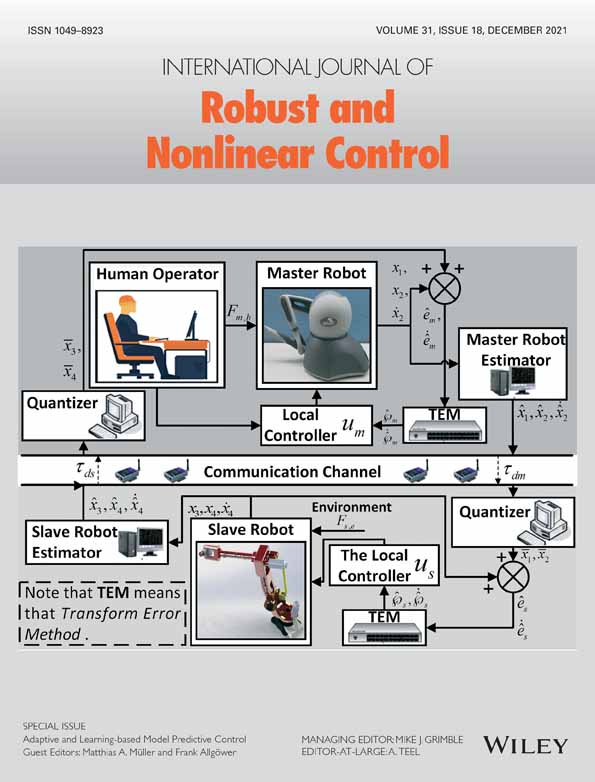Robust adaptive finite-time and fixed-time synchronization of chaotic systems with smooth control
Funding information: Fundamental Research Funds for the Central Universities, JUSRP121069; Fundamental Research Funds of Suzhou University of Science and Technology, 332114604
Abstract
By taking the noise into consideration, this article addresses the robust stochastic adaptive finite-time and fixed-time synchronization of two chaotic systems. The novel adaptive and smooth control protocols are proposed to (i) adjust all the control gains automatically without selecting them in advance; (ii) overcome the chattering problem caused by the signum function contained in the conventional finite/fixed-time controllers, which effectively improves the synchronized performance of chaotic systems. Based on the (stochastic) stability theory, the sufficient conditions are derived for achieving (stochastic) finite-time and fixed-time synchronization, respectively, in which the upper bound of synchronization time can be estimated in advance regardless of initial states of chaotic systems. Finally, two representative applications concerning the memristor chaotic circuit and the permanent magnet synchronous motors validate the effectiveness and feasibility of proposed theoretical results.
CONFLICT OF INTEREST
The authors declare no potential conflict of interests.
Open Research
DATA AVAILABILITY STATEMENT
This article describes entirely theoretical research. Data sharing is not applicable to this article as no datasets were generated or analyzed during the current study.




